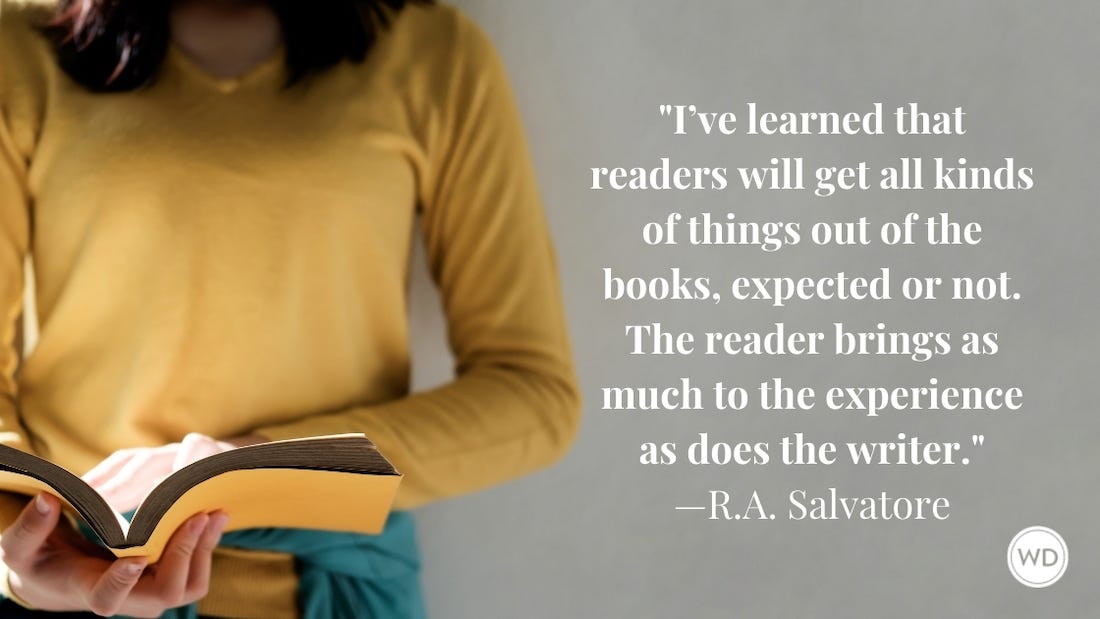The Hustler
After 13 months of hand-selling his book from town to town, Christopher Paolini is vaulting to publishing stardom with a marketing savvy beyond his years.
Christopher Paolini sat listlessly at a festival booth in Livingston, Mont., trying to hawk his self-published fantasy novel, Eragon. He wasn't having much luck until a local ranch hand stopped, flipped through the book ... and then turned to walk away. "I'll arm-wrestle you for it," a desperate Paolini called out.
Paolini cleared off his display table before sizing up his opponent: a good many inches taller and built for tossing bales of hay. But motivated by a basement full of books at home, Paolini won the arm-wrestle, the ranch hand bought Eragon and the novice author earned one of his first fans.
A year later, Paolini's days of arm-wrestling for readers ended, thanks to a serendipitous fly-fishing vacation for novelist Carl Hiaasen. By the summer of 2002, Paolini's self-promotion efforts had earned him and his book serious recognition and sales in the region. Hiaasen and his family, vacationing on the Yellowstone River, stopped at a local bookstore where Hiaasen's young stepson picked up a copy of Eragon.
Hiaasen was impressed by his stepson's enthusiasm for the book and, noting it was self-published, he sent it to his editor at Alfred A. Knopf. That was all it took. Knopf offered Paolini a mid-six-figure deal for Eragon and two sequels (the second book, Eldest, will be published later this year); FOX 2000 Studio signed a movie option; and international publishers inked lucrative sales agreements.
Paolini's talent, youth and genial personality propelled him to celebrity when Eragon reached third on The New York Times bestseller list just two weeks after its August 2003 release.
For several weeks following the book's publication, the author was featured everywhere, including The New York Times, Newsweek, Time and People magazines. Fortunately for Paolini, marketing himself was old hat by that point. While all authors do what they can to try to stand out from the crowd, Paolini had taken that challenge to heart with costumed performances across several states and, yes, the occasional arm-wrestling match.
By the time he sauntered onto the "Today" show set in October, Paolini was already a publicity pro. Not bad for a home-schooled 20-year-old.
DIAMOND IN THE ROUGH
Paolini began writing Eragon at age 15. Although he'd passed his high school equivalency test early and had been accepted at Oregon's Reed College, he chose to defer entrance for a while. He decided to write a book he'd enjoy reading, "to keep myself occupied," he says.
Before beginning to write, he outlined the plot for three books, which he called the Inheritance Trilogy. For extra measure, Paolini and his sister, Angela, developed three languages for the book's characters. The elves' language was based on Old Norse, and two more were invented from the siblings' imaginations and Internet research."I tried to write stories before and they alwaysflatlined after five or six pages because I didn't know what happened next," he says. After outlining the plot, he adds, the writing came easily.
Eragon is the story of a poor farmboy who discovers a magical blue stone, which calls a dragon named Saphira to young Eragon. Together they begin a journey to defend their homeland from an evil king. The 509-page epic goes far beyond the rudimentary efforts of a child author: The writing is graceful and engaging, and the plot is intelligent beyond its author's years. Paolini's writing even earned praise in The New York Times Book Review, after Knopf's edition remained a national bestseller for more than three months. Although Eragon has its awkward moments, wrote critic Liz Rosenberg, overall it's "an authentic work of great talent. ... I found myself dreaming about it at night and reaching for it as soon as I woke."
Paolini spent one year writing the first draft and another editing, before showing it to his parents, who read Eragon with amazement. Experienced professionals—Kenneth is a designer; Talita, a writer and editor—the Paolinis run a small book publishing company out of their home.
Together, parents and son edited the text for publication, an ordeal Paolini considered more arduous than writing. "I learned a huge amount about writing through editing," he says. "For example, in the draft I handed to my parents, Eragon is in the mountains, and I describe the landscape around him in a rather haphazard manner—the mountains, then the moon and clouds, then the mountains again, some mists around Eragon, and then ... the mountains again. So part of the editing was learning how to organize, so all the sentences about mountains were groupedtogether."
The family opted not to submit the book to a traditional publisher. "We were familiar with the odds in the industry. We didn't want the book to just get buried at a big publishing house. That's why we decided to self-publish," Paolini says.
After printing Eragon, his parents set aside all other business to work full time promoting and selling the book.
ON THE ROAD
The good-natured teenager proved the perfect pitchman for his book. At first, he and his parents focused on engagements in libraries and bookstores, but those events didn't bring in much money. "You travel 300 miles to get to a city, and you sell 40 books. With hotel and travel expenses and the cost of printing the books, it's just not worth your time," Paolini says.
He hit his stride, however, when they identified his market as a younger audience—Paolini's peers—and narrowed his focus to schools. Paolini developed a presentation for students called "Why Read? Why Write?" which included readings and drawing demonstrations. (Paolini illustrated the original cover for the book and designed its maps.)
His first speaking event in 2001 was at the local high school he never attended. He walked in wearing his own interpretation of medieval garb: black pantaloons; knee-high, lace-up, black leather boots; a red swordsman's shirt and a black beret. "I looked pretty wild, and I was standing in front of all these kids—the whole school in three batches—doing drawings and readings. I was petrified."
During the presentation, he described how he became interested in writing and shared details about the creation of Eragon. Teachers and librarians, who struggle to convince their students to read, loved the program and told their colleagues in other schools. "It was very rewarding," Paolini says, "when a kid would buy the book and start reading it, and the teacher would say to me, 'That kid doesn't read.' That to me was just wonderful."
Requests for the program spread rapidly. For 13 grueling months, Paolini's father drove him to hundreds of speaking engagements in the western half of the U.S., while his mother booked appearances and struggled to keep up with distribution from home. Soon the Paolinis were overwhelmed by demand for the book, which ultimately sold more than 10,000 copies.
Then came Hiaasen and the Knopf deal, followed by a rigorous professional edit of Eragon—an experience its author compares to having "splinters of bamboo driven into my eyeballs." Paolini concedes that cutting 20,000 or so words was a good idea. "I like to think we just took out the boring sections," he says.
ON THE ROAD AGAIN
When Knopf's hardcover version of Eragon appeared in bookstores last August, the wiser and more self-assured Paolini hit the road again, confident he could handle the challenge of a nationwide book tour. "All the mistakes I was going to make, I got to do during promotional activities before Eragon hit the national spotlight," he says.
Now he enjoys touring and speaking to the public, aspects of publication many authors find painfully uncomfortable. "A lot of the ability to speak in public comes through practice, saying things over and over like a script," he explains. "You set up a series of responses that allow you to avoid getting into trouble. Then you feel safe because you know what you're saying and you know how to answer the questions."
Fortunately, Knopf's promotion was very different from Eragon's early days. The book tour lasted a breezy 31 days, and Paolini—now a seasoned performer—no longer needed to convince strangers to buy his book. "Before this, no one would come to see me in particular. I would just speak to customers as they walked in the door. This time the people showing up had already read the book and loved it. One day in Seattle, they were expecting about 100 people to show up for the event, and they had 300!"
It's in moments like these that you remember Paolini's youth. He's genuinely shocked by his success, and his wonder has an unguarded freshness. Though only 20, he's logged more hours meeting the public and promoting his writing than most authors ever will.
Did he expect book promotion to become a full-time job when he considered Eragon's potential? "Yeah, I knew it was going to be pretty intense, but I'd put so much work into writing it, I couldn't give it up. I knew if it was going to be a success and I was going to be able to continue writing, then I'd have to work extremely hard." Paolini pauses, then adds, "You know, no one could force me to work this hard on something I didn't love. I love writing and I love meeting people, so it's really been a joy."
This article appeared in the March 2003 issue of Writer's Digest.









